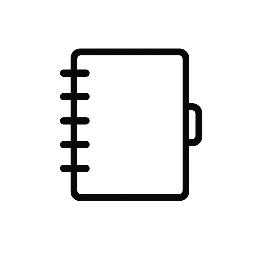Private surgery Alberta offers patients the option to access medical procedures outside the public healthcare system. It allows for shorter wait times and more control over scheduling, often delivering quicker treatment for those who can afford it.
Many turn to private clinics to avoid delays common in public hospitals, especially for elective surgeries. Alberta’s regulatory environment supports private options while maintaining standards for safety and quality.
Choosing private surgery involves weighing costs against benefits like convenience and speed of care. Understanding the available services and how they differ from public options can help patients make informed decisions.
Private Surgery Options in Alberta
Private surgery in Alberta includes a range of procedures performed outside the public system, focusing on shorter wait times and personalized care. Facilities vary in specialization, costs, and eligibility requirements, presenting different choices for patients seeking private treatment.
Types of Private Surgeries Available
Private surgery in Alberta covers many specialties, including orthopedics, ophthalmology, and cosmetic procedures. Common types include joint replacements, cataract removal, hernia repair, and elective cosmetic surgeries.
Some surgeries, like dental implants and fertility treatments, also fall under private care. The options extend to minimally invasive procedures, such as laparoscopic gallbladder removal.
Emergency surgeries are generally not offered privately, as they are handled through the public healthcare system. Non-urgent or elective surgeries make up most private options.
Leading Private Clinics and Hospitals
Private surgery providers in Alberta include clinics like Morpheus Surgery Centre in Calgary and Alberta Surgical Centre in Edmonton. These facilities specialize in outpatient and elective procedures.
Notable private hospitals include Rockyview General Hospital’s Private Wing and Glenmore Surgical Centre, which offer advanced surgical suites and experienced surgeons.
Patients should review credentials and success rates before selection. Many clinics are accredited by Accreditation Canada, ensuring quality standards.
Eligibility and Selection Criteria
Patients must meet specific health criteria to qualify for private surgery in Alberta. These include having a stable medical condition and being medically fit for the selected procedure.
Private surgery often requires a referral from a family physician or specialist who confirms the need for surgery outside the public waitlist.
Insurers or clinics may impose additional criteria, such as previous treatment attempts or age limits. Clear communication with healthcare providers is essential for proper assessment.
Costs and Payment Methods
Private surgeries in Alberta are not covered by the provincial health plan, so patients must pay out of pocket or use private insurance.
Typical costs for procedures vary: a knee arthroscopy might cost between $5,000-$7,000, while cosmetic surgeries can exceed $10,000.
Some clinics offer payment plans or financing options. Patients should request detailed written estimates, including surgeon fees, anesthesia, and facility charges.
Process and Patient Experience
The process of private surgery in Alberta is designed to offer timely access and personalized care. Patients can expect tailored consultations, clear preparation guidelines, and focused post-operative support to ensure smooth recovery.
Consultation and Referral Process
Patients typically begin with a referral from a family doctor or specialist, although some private surgical clinics accept self-referrals depending on the procedure. The initial consultation involves reviewing medical history, diagnostic tests, and discussing surgical options.
The surgeon evaluates eligibility and outlines risks, benefits, and alternative treatments. Scheduling for surgery is generally faster than in the public system, often taking days to weeks. Private clinics also provide clear cost estimates upfront, including surgeon fees, anesthesia, and facility charges.
Preparation and Pre-Operative Steps
Before surgery, patients undergo specific medical assessments such as blood work, imaging, or cardiac evaluations as needed. These tests confirm suitability and help reduce risks during the procedure.
Patients receive detailed pre-operative instructions covering fasting, medication adjustments, and hygiene. Clinics may offer pre-procedure counseling to address concerns and optimize mental readiness. On the day of surgery, streamlined check-in processes minimize wait times.
Post-Operative Care and Recovery
After surgery, patients are closely monitored until they meet discharge criteria, focusing on pain control and vital signs stability. Many private facilities provide private recovery rooms for comfort and privacy.
Follow-up appointments are scheduled to track healing and address complications early. Rehabilitation services or referrals might be arranged if necessary. Clear guidance on wound care, activity restrictions, and medication is provided to support recovery at home.


Leave a Reply